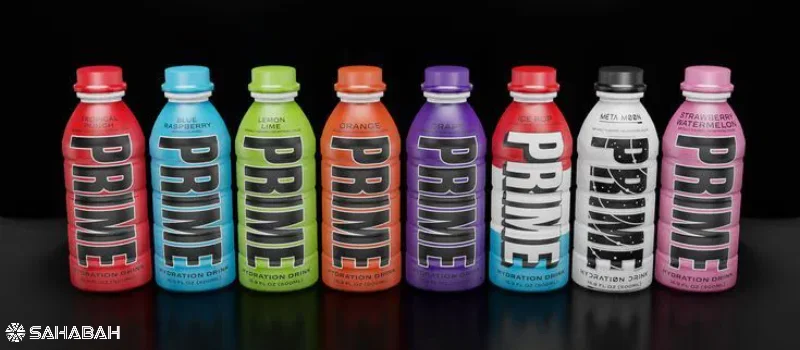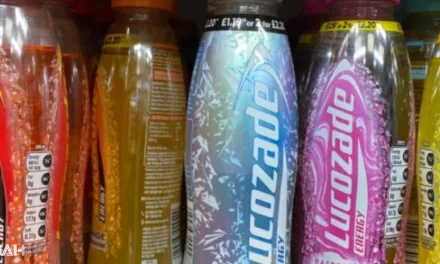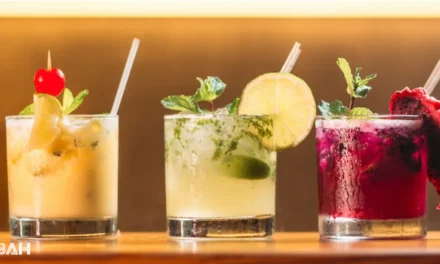As a muslim consumer who values transparency and wants to make informed choices, I was curious to delve into the halal status of Prime. In this article, I will uncover the truth behind Prime’s halal certification, providing you with the knowledge you need to confidently enjoy this famous energy drink.

The Controversy Around KSI’s Drink Explained
Prime is a new sports drink that has quickly gained popularity since being launched by YouTube stars KSI and Logan Paul in 2022. However, questions have been raised about whether Prime is halal, or permissible according to Islamic law.
Prime comes in several fruit flavors and is marketed as a hydration and energy boosting drink. As noted on Prime’s website:
- Prime contains vitamins, electrolytes, branched-chain amino acids and more
- It does not contain alcohol, caffeine, or animal by-products
With a growing Muslim consumer market, the halal status of food and beverages has become an important factor for many buyers. This has raised significant discussion around whether Prime is halal certified or not.
KSI has said that Prime is “working on” getting halal certification, but it is unclear if this process has been completed. This has led to debate among Muslim religious experts and consumers about the halal compliance of ingredients in Prime.
Background on Halal Food Requirements
For food and drink to be considered halal, it must comply with Islamic dietary laws. Some key requirements include:
- Cannot contain alcohol or intoxicating substances
- Cannot contain pork or pork by-products
- Meat must come from animals slaughtered according to Islamic procedure
- Must not contain blood or blood by-products
- Cannot contain carnivorous animals or birds of prey
For any food product to be Halal certified, it must comply with the Islamic dietary laws as prescribed in the Holy Quran and teachings of Prophet Muhammad (PBUH).
For a drink to be halal, it must not contain alcohol or other intoxicating substances. It also cannot contain extracts or by-products from prohibited animals like pigs.
Official halal certification is important to ensure ingredients and production methods meet these standards. Certification is issued by Islamic bodies like the Muslim Food Board in the UK. This gives Muslim consumers confidence in the halal status of products.

Ingredients in Prime
According to the Prime website, the main ingredients in Prime are:
- Water
- Vitamins (B3, B5, B6, B12)
- Branched-chain amino acids
- Electrolytes (potassium, sodium, magnesium)
- Natural flavors
- Sweeteners (sucralose and acesulfame potassium)
- Fruit juice concentrates
- Citric acid
- Other minor ingredients
As stated on their FAQ page:
Prime Hydration contains no alcohol, caffeine, or artificial colors. All flavors are gluten-free and dairy-free.
Based on the listed ingredients, Prime does not appear to contain any alcohol or animal by-products that would be prohibited according to halal diet standards.
An imam interviewed by Manchester Evening News stated:
“Looking at the ingredients, there does not seem to be anything non-Halal in there.”
However, without official certification, some Muslim consumers remain unsure about trace ingredients and processing methods used.
Lack of Official Halal Certification
The main issue around Prime’s halal status is the lack of official halal certification. As noted earlier, KSI has said Prime is “working on” getting certification but it has not yet been obtained.
At the time of writing, PRIME drinks are not certified Halal by any reputable Halal authority.
The Muslim Food Board, which issues halal certificates in the UK, stated:
PRIME energy drink would need to be assessed by Halal Food Authority before Halal certificate can be issued.
Without oversight and approval from halal authorities, some Muslim consumers are wary of claims about Prime’s ingredients and processing methods.
“I’m sceptical about consuming products that don’t have halal certification clearly labelled on them.”
Obtaining halal certification would require an audit of Prime’s supply chain and manufacturing processes by a halal authority. This certification is what provides full confidence to Muslim consumers about a product’s halal status.
Perspectives from Muslim Experts and Consumers
Opinions from Muslim religious leaders and consumers are mixed on whether Prime can be considered halal without official certification.
Some have argued that based on the ingredients, Prime appears permissible:
-
An imam told Manchester Evening News: “In my opinion it is permissible to drink as it does not contain any non-Halal ingredients.”
-
“According to our analysis, the Prime drink itself should be considered Halal.”
However, others emphasize the importance of proper certification:
-
“We advise that consumers should refrain from purchasing PRIME until official Halal certification is obtained.”
-
Per NationalWorld, a Muslim consumer commented: “I need reassurance from a certified Muslim body that it is 100% halal before I drink this.”
Without consensus from halal authorities, the mixed perspectives on Prime’s permissibility remain unresolved for many Muslim consumers. Official certification would provide definitive clarity.
The Verdict on Prime and Halal
Based on an analysis of ingredients listed and opinions from some Muslim religious leaders, Prime drinks likely meet halal standards and can be permitted for consumption by Muslims. However, the lack of official certification from accredited halal authorities makes its status inconclusive.
While Prime is formulated without any apparent haram substances, manufacturing audits are needed to verify the entire supply chain, processing and sanitation methods used, as pointed out by The Islamic Information:
Halal certification requires audit of the whole supply chain and production processes by a halal authority, which Prime drinks do not seem to have as yet.
In summary, obtaining official halal certification for Prime remains an important step to formally confirm its permissibility status for Muslim consumers.
Impact on Prime’s Marketability
The lack of halal certification could limit Prime’s growth and acceptance among Muslim consumers, which is a sizeable market segment.
According to Manchester Evening News:
Halal certification could allow the brand to expand into untapped markets across the Muslim world, which has a population of 1.9 billion.
As noted in NationalWorld:
Obtaining halal certification could allow the Prime brand to be sold in Islamic countries in regions like the Middle East and Southeast Asia.
Many major consumer brands like Coca-Cola, Nestle, and Unilever have obtained halal certification to increase their global reach:
Nestlé Malaysia have obtained halal certification from Islamic institutions to comply with requirements and stand out in the competitive halal product marketplace.
Without similar certification, Prime could miss out on significant sales opportunities in the growing Muslim consumer market. Seeking credible halal certification for their products would benefit the brand’s future growth prospects.
Is Prime Halal FAQ
What does “halal” mean?
“Halal” refers to any object or action that is permissible under Islamic law.
Does Prime drink hold a formal halal certification?
No, Prime drink is not certified halal by a recognized halal certification authority.
Are Prime drinks safe for Muslims to consume?
Yes, While Prime products do not possess an official Halal Certification, it is important to note that our products do not contain any haram ingredients.
What ingredients or manufacturing processes would require such certification?
Ingredients or manufacturing processes that would require halal certification include any non-halal ingredients or processes that are prohibited by Islamic law.
Is caffeine present in Prime hydration drinks?
Yes, Prime hydration drinks may contain caffeine.
Are energy drinks considered halal?
Energy drinks may or may not be halal depending on the ingredients used and the manufacturing processes involved.
Conclusion
In summary, while the ingredients in Prime suggest it should be permissible under halal diet standards, the lack of certification from accredited halal authorities means its status remains unclear for Muslim consumers.
The key points on Prime’s halal compliance include:
- Formulation does not appear to contain alcohol or haram ingredients
- Opinions among Muslim experts vary on permissibility without certification
- Official certification would require audits of entire supply chain
- Lack of certification could limit Prime’s appeal and sales in Muslim markets
As KSI has indicated Prime is seeking halal certification, this would provide definitive clarity on its halal status.
Halal certification from an accredited halal authority would confirm if Prime fully complies with Islamic dietary requirements.
Obtaining this formal approval would reassure Muslim consumers about Prime’s halal compliance and support the brand’s growth in Muslim-majority markets.





